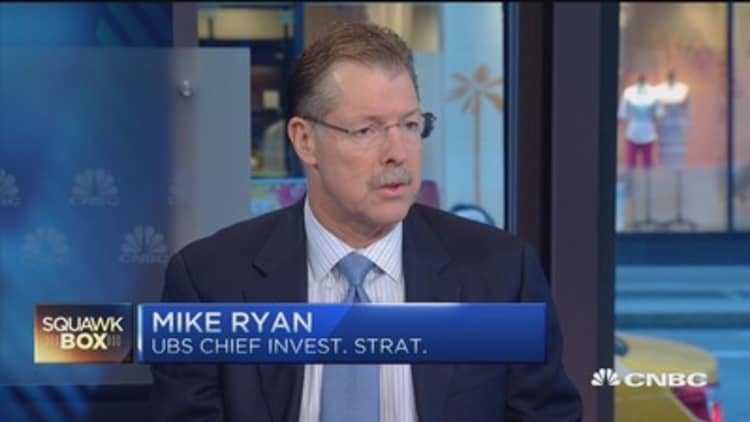
Buying during pullbacks has been a reliable way for investors to build positions during the six-year bull market, but that strategy may not be so sound as valuations move higher, financials professionals said Friday.
In the last five years, the Federal Reserve has stepped in to assure markets it would not raise interest rates every time stocks dropped sharply, Anthony Chan, chief economist at Chase Wealth Management, told CNBC's "Squawk Box." The central bank has held its benchmark interest rates near zero since December 2008.
That reassurance from the Fed has led to far more "mini-corrections" of greater than 3 percent but less than 10 percent during this stock market cycle, he said. In typical bull periods since the '40s, markets experienced about 19 of these mini-corrections, Chan explained, but investors have now seen 50 since March 2009.
"That I think speaks to the fact that the central bank is coddling these markets, and stepping in on these dips," he said.
Buying the dives remains a good investment strategy only if investors assume there is no recession on the horizon, Chan said.
Read More As stocks set records, so does investor neutrality
However, the wisdom of buying on pullbacks boils down to "why and at what level," said Mike Ryan, UBS chief investment strategist. Each of the pullbacks that has led to investors recommitting have typically occurred at lower stock valuation levels, he explained, but equities are now looking more expensive.
The closed at a record high for the 10th time this year Thursday. The Dow Jones industrial average hit a record close Tuesday, capping off its first four-day winning streak since February.
During the last stock market correction in 2011, there were some "pretty chunky tail risk issues," Ryan said. The market could break with the prevailing pullback trend if investors see a repeat of the euro zone crisis or the United States experiences turbulence during the 2016 presidential race.
"If those things kind of resurface again, then I think what you could see is corrections more than these kind of modest pullbacks with immediate recommitment in the markets," he told "Squawk Box."
Read More Energy stocks are cheapest in nearly 30 years: Analyst
Ryan believes the fundamental backdrop for macroeconomics is sound and expects a reacceleration of growth in the second half of 2015, but he forecasts markets will be choppy and produce only limited gains at least through the summer.
Even if the markets get a better read on when the Federal Reserve will raise interest rates, uncertainty over whether Greece will default in June and continuing turmoil in the Middle East could produce substantial volatility, Ryan said.
"We know that in an environment where you typically have less liquid conditions, those type of factors can get exaggerated," he said. "So I'm not saying we're going to have this incredibly choppy market, I just think we'll have a less directional move where we're likely to see equity markets move in uniform higher."


